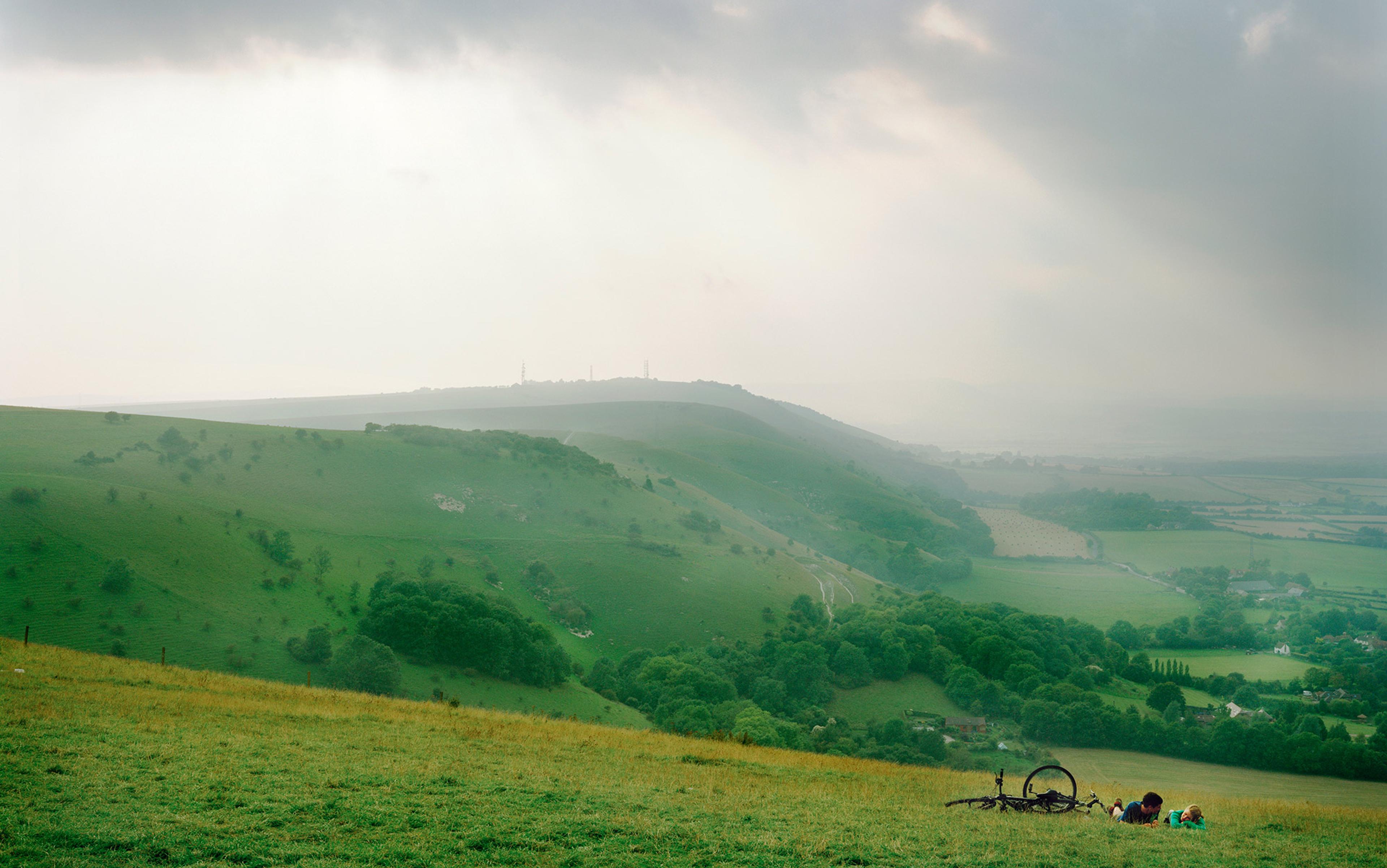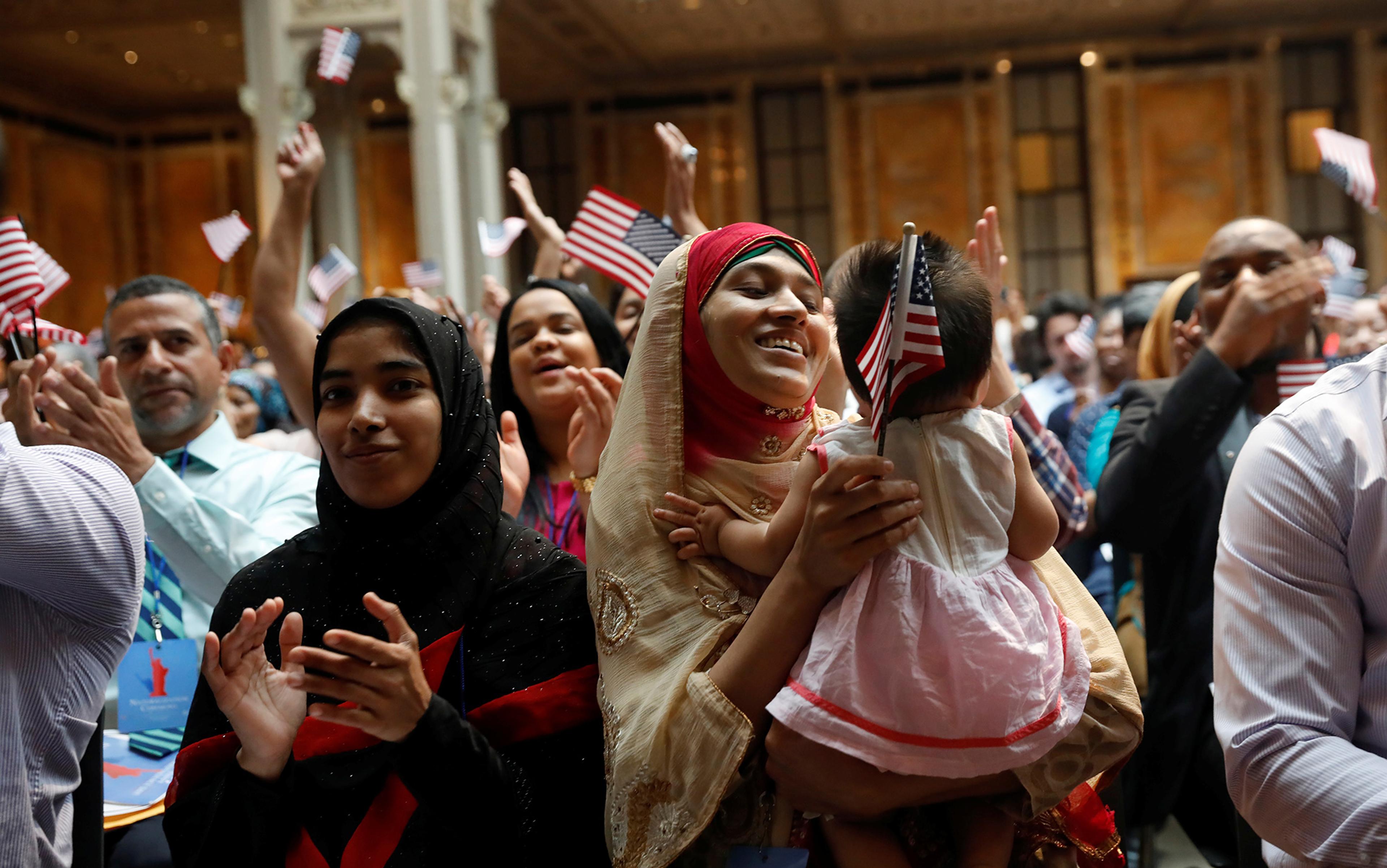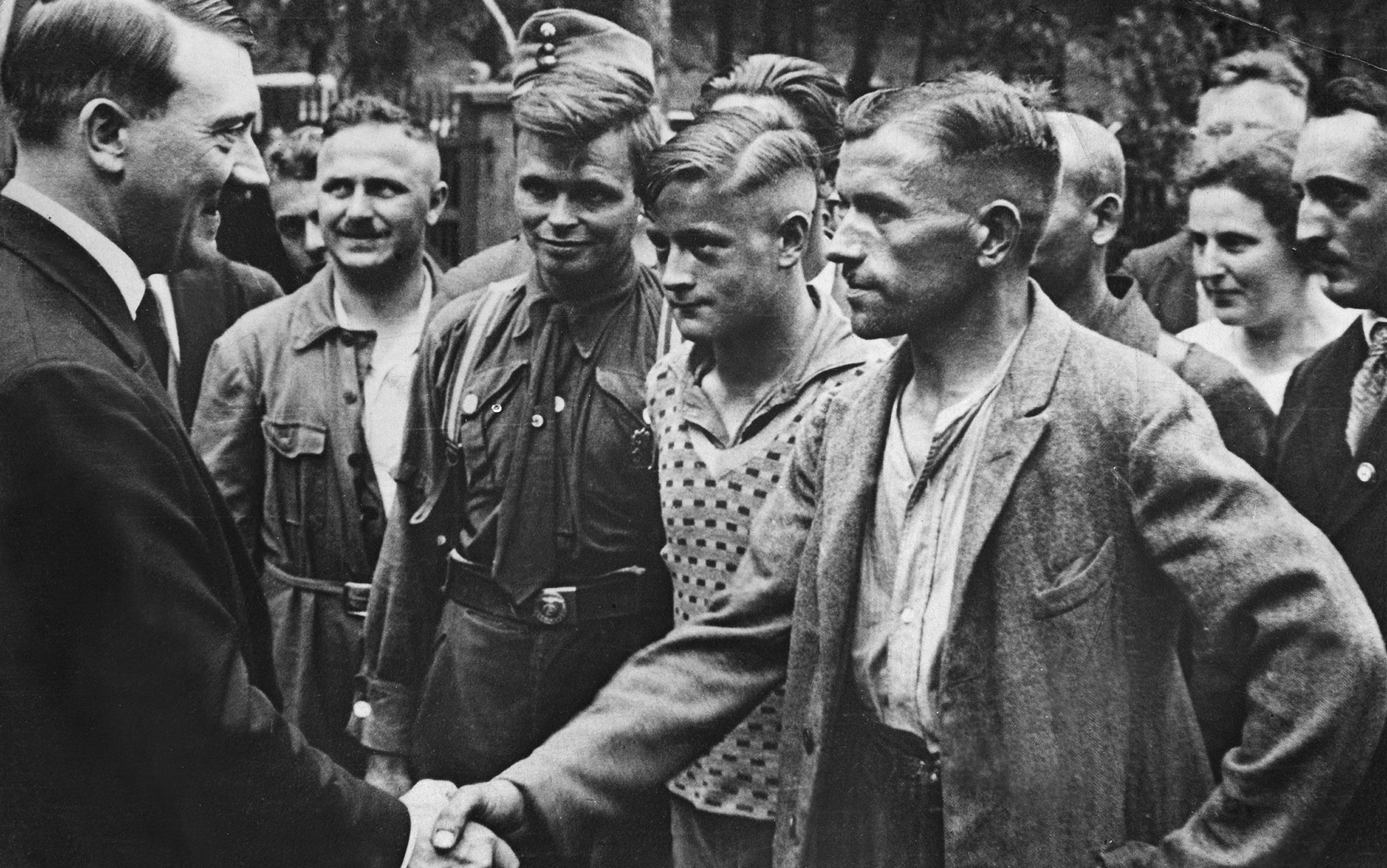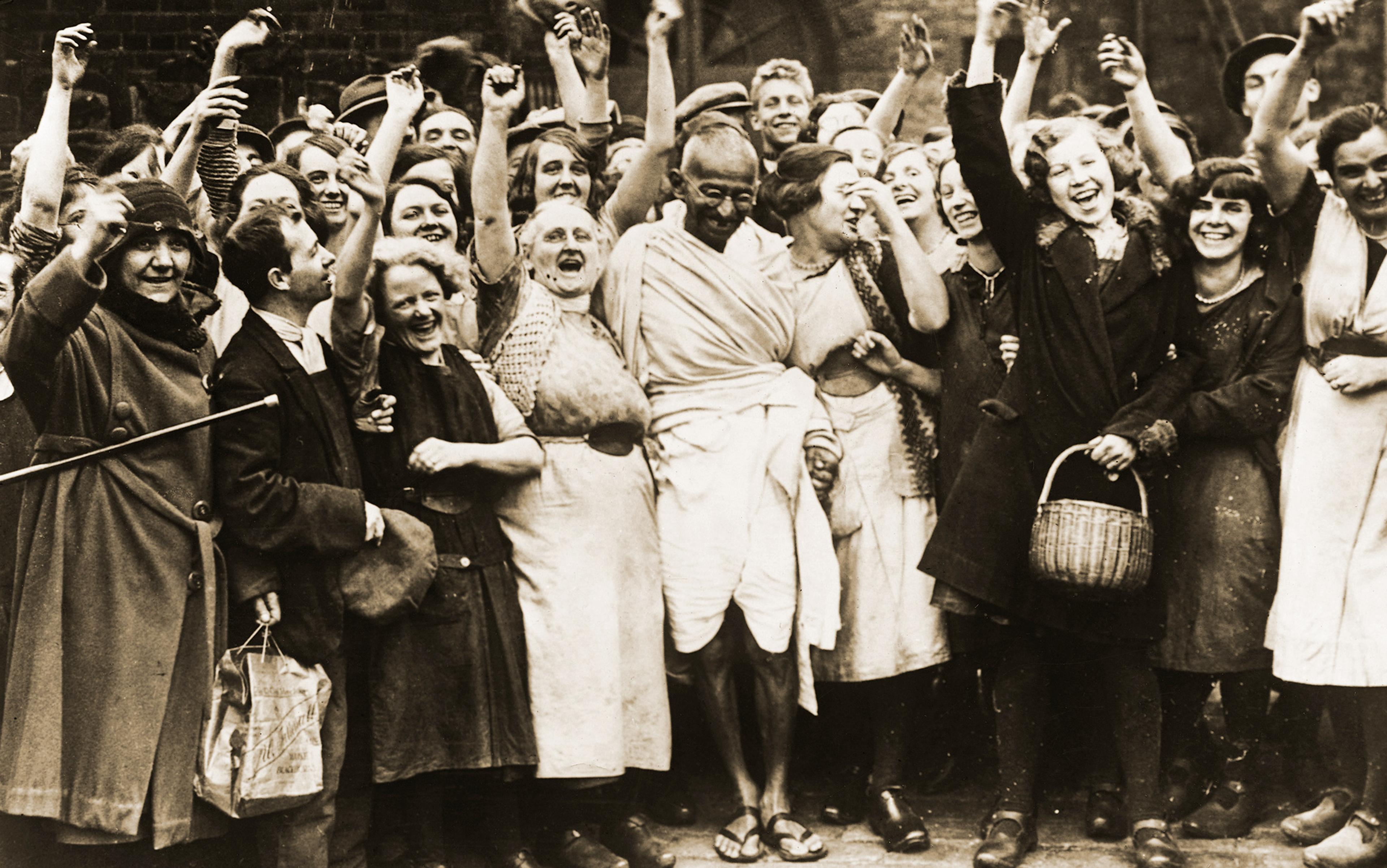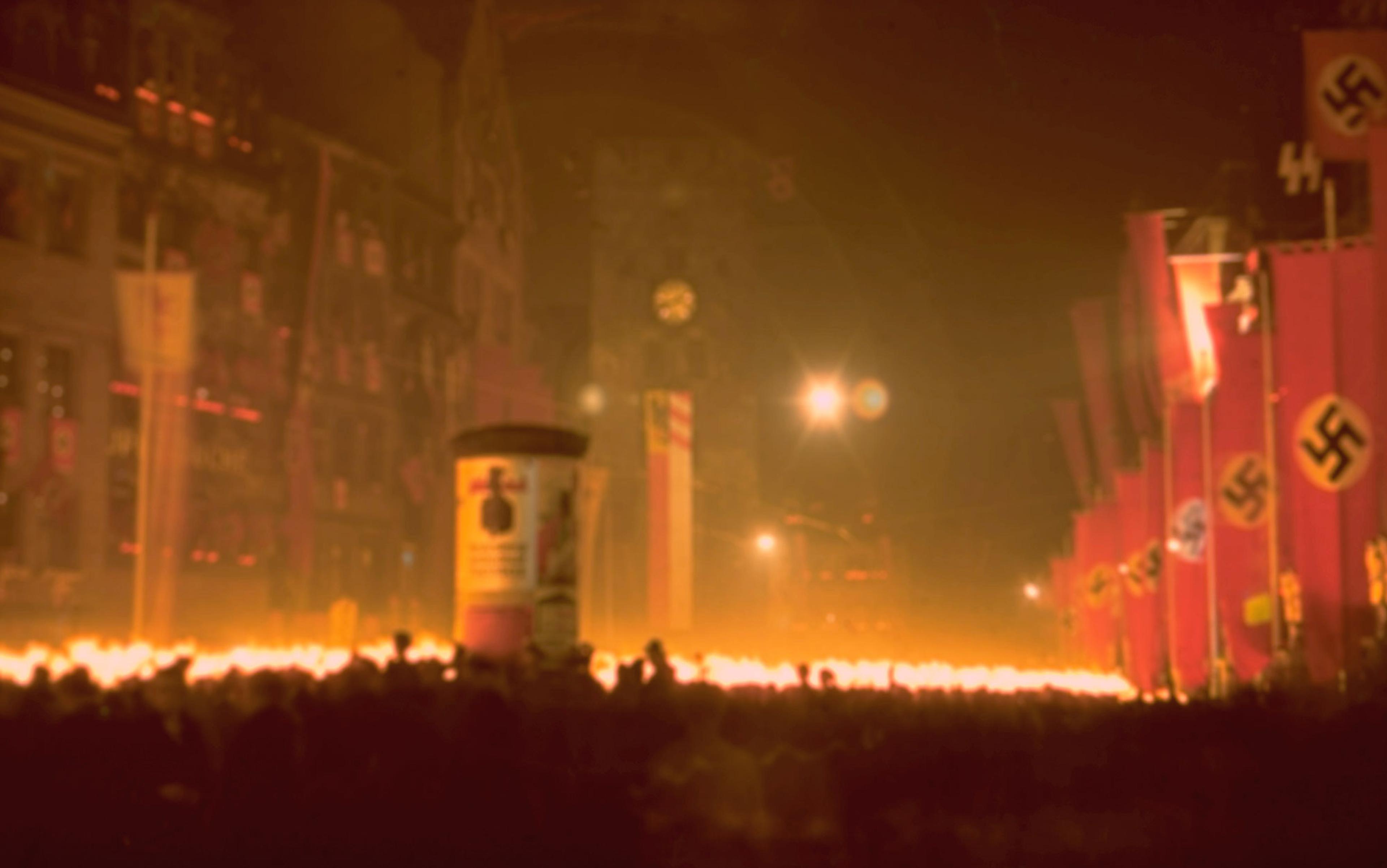Twenty summers ago something strange and unexpected happened in England. As the country played host to the 1996 European football championship, the flag of St George started appearing. Hanging from windows, drawn across shop fronts, worn on T-shirts and waved at matches, the previously almost unseen red cross on a white background suddenly became commonplace. Even Marks & Spencer shops – a British consumer institution that symbolises middle class clothing mores – started a line of underpants featuring the flag.
In most nations, the public popularity of the national flag would not be seen as news. But in England – which along with Wales, Scotland and Northern Ireland makes up the United Kingdom – the hundreds of thousands of fluttering pennants was of profound significance: apart from a devoted but small hard right-wing group who favoured the flag of St George, England’s football fans preferred flying the Union Jack. The rising, genuine popularity of the flag of St George was unprecedented, and perhaps the first widely visible sign of the awakening of English nationalism. Its return has proven one of the most important and surprising political developments in a generation.
In many ways England has hidden in plain sight; its identity disguised by being part of larger political entities that it dominated. England swallowed its neighbours on the British Isles and Ireland three centuries ago, then spread out across the globe as the British Empire. Out of this expansion emerged a shared British identity; it borrowed mostly from Englishness but also provided a capaciousness under which being Welsh, and even Scottish or sometimes Irish, could fit.
But the British imperial project is dead. The UK has rolled back from its colonies. Decolonisation has even washed up on the shores of Scotland, whose politics is now dominated by a nationalist party committed to independence. Wales and Northern Ireland too have devolved governments. As these political tectonic plates shifted and cracked the British state, no one paid much attention to the English, though they do represent 84 percent of the population of the UK. But now it seems that the English too want to free themselves from the British Empire.
The vote for Britain to leave the European Union was overwhelmingly an English one and the English are reemerging as a distinct nation, and perhaps soon as their own state (possibly with Wales still tacked on) existing outside the EU. Just what sort of nation the English seek to create – how they will define themselves and their country – is one of the most important, and unexpected, questions in world politics today.
The reemergence of English nationalism from Britishness has been a long time coming. As recently as 1997, a British Social Attitudes survey found that 55 per cent of English voters called themselves British, while just 33 per cent said they were English. But as colonies freed themselves and as Scotland, Northern Ireland and Wales increasingly controlled their own futures, the English started to believe that Britain was holding them back too. By 2012, the 22-point gap in the BSA study had vanished: now 43 per cent of voters identified as English, the same number who identified as British.
The devolution of powers from Britain’s central government has driven the return of Englishness. Scotland, Wales and Northern Ireland won their own parliaments, and degrees of control over their own affairs, while the English have started to wonder where their own parliament is. It used to be presumed that for all intents and purposes it was the House of Commons – the British Parliament. Except, of course, British Parliament is also full of non-English politicians, voting on issues that affect England. English MPs, in contrast, have less and less power to influence the affairs of the non-English parts of the United Kingdom.
Suddenly television screens were filled with regional English accents, replacing the clipped tones of generations of more ‘British’ presenters
The English – especially those who voted Conservative – noticed that England, per head of population, got less money from the Treasury than the other British nations. The central British government had ministers for Scotland, Wales and Northern Ireland – but none for England. Scotland, where state expenditure per head is £1,600 higher than in England, has free NHS prescriptions. Scotland also has free – and excellent – university education. In England, students must pay.
It would be simplistic, however, to see the rise of English nationalism as a purely political fact. People embracing the flag of St George were not calling for an English parliament – and much less any plan to create devolved governments for the regions of England. Partly in reaction to the increasingly strident voices of Welsh and Scottish nationalism, they were expressing a cultural affinity to Englishness as something to be proud of, and something that went far beyond a football pitch. Indeed, in recent years, expressions of Englishness appeared as genuinely popular culture, from celebrating regional English foods, to ‘rediscovering’ drinks like cider and real ale, to the immense popularity of TV shows like Downton Abbey. Suddenly television screens were filled with regional English accents, replacing the clipped tones of generations of more ‘British’ presenters. A flood of books hit the markets exploring what it meant to be English, building on a long tradition of examining the national character and reintroducing the genre to an entirely new generation.
The sort of Englishness that is emerging, however, is far from clear. England is still slouching to some unknown Bethlehem, unsure of what is being born. For those people skeptical of nationalisms of any kind, there is certainly room for worry, if not outright fear. English nationalism has long had a nasty side and it is one that may yet emerge dominant from the shadows. For some it is already out, blinking wide-eyed and snarling in the post-referendum daylight. Since the Brexit vote there have been attacks across England, often targeting the large Polish population that currently makes its home in the United Kingdom.
The ire has extended well beyond those born elsewhere. This strain of English nationalism has ploughed the deep and familiar furrow of race-baiting, defining Englishness by skin colour, not by culture or place of birth. The English Defence League – a group who describe themselves as anti-Islamist activists – has marched and fought through English streets. English-born minorities have been singled out, alongside the Poles and other EU nationals, and told to ‘go home’, ignoring the fact they already live in the place of their birth. Hate crimes across England have surged in the wake of Brexit, which coursed like an electric shock through the country’s body politic. The murder of a pro-EU MP, Jo Cox, shows how ugly the forces unleashed by reckless pandering to the English right could be.
There have been warnings before. Former Conservative leader William Hague – hardly a shrinking violet when it comes to right-wing politics – once described English nationalism as ‘the most dangerous of all forms of nationalism that can arise within the United Kingdom’, realising that just as English nationalism made Britain, so it can unmake it.
It blames the foreigner for destroying a vision of England that only ever existed for a very few people
Sifting through the imagery driving this form of English nationalism, the vision of England that emerges is an old and familiar one. It is white, it is church-going in a ‘tea with the vicar’ kind of way and it celebrates World War Two’s victories as if they happened yesterday. It distrusts the foreign and the urban: it prefers villages and a never-changing countryside. It was best summed up by Conservative prime minister John Major in 1993 when he spoke of warm beer and cricket matches. It is a powerful vision and one not limited only to the right. The idea of England as a pastoral idyll, harking back to a pre-industrial age where everyone was content and at peace in nature, is a common one in culture, literature and politics.
But it is also a vision that bears little resemblance to the ways tens of millions of people experience England. It is anti-modern, not just in tone, but in that it looks at the great injustices – poverty and anger – that have always existed in England and draws exactly the wrong conclusions. It blames the foreigner for destroying a vision of England that only ever existed for a very few people and, even for them, not for very long at all.
Yet to pigeonhole English nationalism – as so many horrified observers do – as something automatically reactionary, both fearful and to be feared, is a mistake. In fact, English nationalism is emerging on an island where its successful Scottish and Welsh equivalents have stridently pegged out traditional left-wing terrain. Scotland’s ruling Scottish Nationalist Party is pushing for independence on a social justice compact consciously aping the Scandinavian model. In Britain, it seems, nationalism can be embraced by the progressive left and thus English nationalism, perhaps, does not have to be the exception to the rule.
It is an uphill battle. The knee-jerk position of the English left has always been to shun any outward form of nationalism, even, ironically, when most obviously exemplifying such national virtues as self-deprecation, overt cynicism and an obsession with public propriety. As George Orwell wrote in 1941: ‘In left-wing circles, it is always felt that there is something slightly disgraceful in being an Englishman.’ That oft-quoted sentiment found a blunter modern expression when Guardian writer Simon Hattenstone declared in 2014 he felt burning shame at a nation that was little more than ‘bigots and Bullingdon club bullies, snarling bulldogs and rapacious bankers.’
But that is a simplistic critique. There is a little noticed but vibrant strand of English nationalism that embraces social justice, equality, workers’ rights and old-fashioned radicalism. It can find eloquent modern expression in the songs of musician Billy Bragg. Unlike Hattenstone, Bragg is happy to wear his nationhood on his sleeve in a musical celebration of working class struggle and a vision of England that embraces diversity and change as ever-present. Just take the lyrics of 2002’s ‘Half English’, celebrating the many national traditions with origins overseas:
My breakfast was half English and so am I you know
I had a plate of Marmite soldiers washed down with a cappuccino
And I have a veggie curry about once a week
The next day I fry it up as bubble and squeak
Cos my appetite’s half English and I’m half English too
This English nationalism hits some of the same notes as its right-wing cousin – a love of countryside and a pastoral idyll feature just as often – but it is married to a struggle for social justice. This is the English nationalism that remembers England’s elected representatives fought a civil war to behead their King more than a century before rebellious French peasants dragged Louis XVI to the guillotine. It is an England of John Wycliffe translating the Bible into English so medieval peasants could hear the word of God in the vernacular they spoke, not the Latin of their priests. It is Chartists being massacred at Peterloo. It is Levellers, emerging from the chaos of civil war to claim land for the common man, producing manifestos of democratic philosophy that sound as radical today as they did in the 1640s. It is the vision of the poet William Blake – who dreamed (indeed hallucinated) of an England of justice and peace and expressed it so memorably in his writings. It is the Tolpuddle Martyrs – sent to the 19th century prison colony of Australia for forming a union. It is the Jews of London’s 30s East End, rising up to fight in the streets against the Blackshirts of Oswald Mosley: an example of the two strands of English nationalism coming to direct blows.
This progressive English nationalism even has its own anthem in the form of Blake’s brief 1808 poem ‘And Did Those Feet In Ancient Time’, rendered into song as ‘Jerusalem’. While officially the British national anthem ‘God Save the Queen’ is played at English sporting occasions, it is now ‘Jerusalem’ that is often embraced by many in the crowd. It is a song that replaces the official anthem’s dreary, dirge-like exhortations of smashing the Scots and hoping for the health and long rule of a revered monarch, with a vision of fighting for a utopia of justice and equality. The Jerusalem Blake writes about is a cause, not a city, and it takes the familiar English worship of pastoral ideals and forges a vision of shared humanity:
I will not cease from mental fight,
Nor shall my sword sleep in my hand,
Till we have built Jerusalem
In England’s green and pleasant land
This is martial language. But, just as right-wing nationalism needs an enemy in the form of the EU and foreigners, this strand of nationalism’s implacable foe is an uncaring, exploitative elite. For Blake it was the titans of industry whose ‘Satanic mills’ polluted mind and body; for modern nationalists it is more likely to be financiers in the City of London, reaping billions of pounds of profit and warping the economy and politics of an entire country in their favour.
Some Leave voters placed their mark on the ballot – not out of fear – but out of hope for a better future
This English nationalism has other public proponents besides Bragg. Labour MP Jon Cruddas has long extolled the need for his party to embrace and foster an English sense of identity, seeing no contradiction between that and the promotion of socialist values. ‘Labour has to build a democratic, socialist and republican cross-class alternative to reactionary English nationalism. It can do this only by meeting racism on its own ground: in the streets, in popular culture, in language and in the historical myths and insecurities of the English,’ he wrote in New Statesman back in 2010, words that seem remarkably prescient.
For now, in the wake of Brexit, among many left-wing commentators realising that leaving the EU means empowering a right-wing Tory government, there has been a much wider move to make the best of a terribly bad deal by seeking to stake out this new ground. If England is to reemerge, they say, then that England should be a fairer and more equitable place. There is a reason that one of the most popular promises made by the Leave campaign (and almost immediately retracted in the wake of victory for Brexit) was for spending 8 billion pounds more a year (that’s an additional 154 million pounds every week) on the National Health Service. Underneath all the heat and noise of a vicious and unruly ballot, at least some Leave voters placed their mark on the ballot – not out of fear – but out of hope for a better future when it comes to the most basic of human rights: free healthcare for all.
For them, these words by environmental and leftist campaigner Paul Kingsnorth in New Statesman might ring true: ‘It is time to reclaim both England and the proud tradition of radical nationalism, rooted but not chauvinistic, outward-looking but aware of our past, attached to place not race, geography not biology.’ It is a nationalism hardly alien to the British Isles: the Scots would easily recognise it as their own.
It is with an eye on history’s tendency for irony that we could term this fight over the English soul as ‘the English Question’. After all, the English themselves have made an imperial habit of pondering the questions of India/Scotland/Ireland and other conquests. With barely concealed glee, Irish journalist Fintan O’Toole wrote in The Irish Times in June: ‘Is England ready for self-government?’
It is a fair point. For, if the progressive wing of English nationalism is to win out from the ruins of Brexit, then it will have to succeed at something British nationalism failed to do: knit a wide disparity of people together by persuading them of their mutual class interest in social justice. British nationalism did not succeed at this; its failure to convince a Glaswegian docker and a Birmingham factory worker that they have more in common than either has with a wealthy banker from Edinburgh or London partly explains the current fragmentation of British identity (and the British state). As the empire’s glow faded, a true class-based politics failed to emerge that could have provided a viable push for a British party of the left that fought for social justice across the whole United Kingdom. But Labour never operated in tribal Northern Ireland, it has been virtually wiped out by the SNP in Scotland, and in Wales must continually fend off the leftward jabs of Plaid Cymru.
The same threat exists in England now. In order to work, the English nationalist left has to persuade the Bengali waiter in London and the young white benefit claimant in Manchester, and Liverpool, and other blighted Northern cities, that they share a deep affinity: that they both occupy the same supra-identity and have the same class interests in the same state. It has to thread together a thousand distinct identities and create a modern patchwork quilt of unity out of diversity that is the basis for any modern social democratic state. It has to stress a common cause of a fight for a better life, based on social justice at home, not on some nebulous threat from Brussels or anywhere else. It has to persuade them with the flag of St George.
Based on recent history, based on a failure to do that under the Union Jack, based on the chaos emerging from Brexit and the years of uncertainty and Conservative rule that lie ahead, the odds look long. But complete pessimism is not an English trait. Indeed, throughout English history – from Agincourt to the Battle of Britain – there has been a tendency to prefer winning from the position of plucky underdog. Perhaps, then, there is still hope for a fairer vision of the English nation to emerge as it reawakens from its deep slumber into one of its darkest hours.
